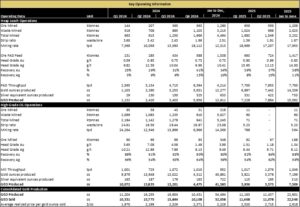Summary
Nutritional meta-analyses often promise certainty but deliver a plateful of confusion. A new study flips the script, embracing the messy reality of conflicting data, offering a fresh perspective on the dietary dangers of processed meat,
Source: American Council on Science and Health

AI News Q&A (Free Content)
Q1: What recent insights have been gained from logistic regression on dietary behavior and nutritional deficiency risks?
A1: A study focused on the Bicol region of the Philippines used logistic regression to analyze dietary behavior's impact on nutritional deficiency dermatoses (NDD). The research found that while traditional rice and plant-based diets were low in riboflavin, they still managed to slightly reduce the odds of NDD. Foods rich in riboflavin, like meat, eggs, and dairy, significantly lowered NDD risks. The study underscored the importance of nutrition interventions, such as fortified rice and better dietary diversity, to mitigate these risks.
Q2: How do trans fats in pastries influence mesenchymal stem cell behavior and what are the potential health implications?
A2: A study conducted in Spain analyzed trans fat content in commercial pastries and their biological effects on mesenchymal stem cells (MSCs). The findings showed that trans fats caused dose-dependent impacts on MSC viability, reducing cellular adhesion and proliferation while increasing cytotoxicity. This underscores the need for stricter regulatory measures to monitor trans fat levels in foods, as their consumption poses significant health risks, particularly affecting cellular health.
Q3: What challenges do traditional dietary monitoring systems face, and how are they being addressed?
A3: Traditional dietary monitoring systems often struggle with imprecision, underreporting, and low adherence due to manual food logging. Current solutions involve using machine learning for automatic food recognition and volume estimation, improving the accuracy and user engagement in dietary assessments. These advancements help tackle dietary-related issues such as obesity and related chronic diseases.
Q4: What role does the Mediterranean diet play in reducing chronic disease risks and mortality?
A4: The Mediterranean diet, rich in plant-based foods and healthy fats like olive oil, has been associated with a reduced risk of heart disease and early death. Observational studies have shown that this diet can lower all-cause mortality and aid in weight loss for obese individuals. Its emphasis on whole foods and moderate consumption of fish and dairy products makes it a sustainable and health-promoting eating pattern.
Q5: What are the health risks associated with the consumption of sodas?
A5: Sodas, particularly those high in sugar, contribute to various health issues such as obesity, type 2 diabetes, and dental problems. The high-fructose corn syrup commonly used in sodas can lead to insulin resistance, increased fat accumulation, and metabolic syndrome. Reducing soda consumption is advised to mitigate these health risks.
Q6: What did the study on COVID-19 outbreaks in meat processing plants in Germany reveal?
A6: The study identified that despite protective measures, COVID-19 outbreaks occurred in German meat processing plants. Factors like temperature, ventilation, and physical distancing were critical in influencing infection rates. The prevalence was notably higher in areas like deboning and meat cutting, highlighting the need for improved workplace safety protocols.
Q7: How do processed meats contribute to dietary health risks?
A7: Processed meats are linked to increased risks of colorectal cancer, cardiovascular diseases, and type 2 diabetes. The high levels of sodium, preservatives, and nitrates in these foods contribute to these health risks. Reducing consumption of processed meats in favor of fresher, unprocessed options is recommended to improve health outcomes.
References:
- Logistic Regression Analysis on the Dietary Behavior and the Risk of Nutritional Deficiency Dermatosis: The Case of Bicol Region, Philippines
- Trans Fats in Spanish Pastries and Their Influence on Mesenchymal Stem Cell Behavior In Vitro and Related Health Risks
- A Comprehensive Survey of Image-Based Food Recognition and Volume Estimation Methods for Dietary Assessment
- Mediterranean Diet
- Investigation of superspreading COVID-19 outbreaks events in meat and poultry processing plants in Germany: A cross-sectional study
- HTTPError('432 Client Error: for url: https://api.tavily.com/search')





